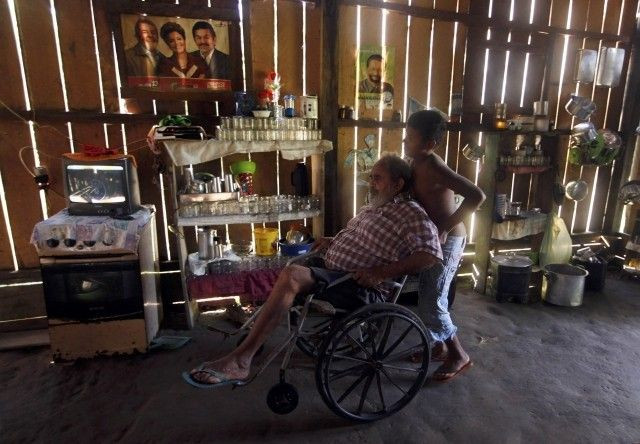Brazil Says They Will Not Hire Cuban Doctors; Turns To Spanish And Portuguese Physicians Instead

Brazil’s interior provinces are daunting for the uninitiated. They are remote, isolated and very, very poor. And though malaria, yellow fever and tuberculosis run rampant, Brazilian doctors often refuse to be assigned to areas like Pará, Goiás or Mato Grosso.
The Brazilian government, it turns out, has started looking for foreign physicians who would be willing to travel to these areas and provide the kind of medical care that is needed. Earlier this month, the government announced that they were in talks with ministries in Spain, Portugal and Cuba, who might be up for helping out in those regions where there are only two doctors per 1,000 inhabitants, according to the Spanish newspaper El País.
Brazilian Health Minister Alexandre Padilha made public a slew of requirements for potential incoming doctors: They would have to pass an exam, since there would not be an automatic transferal of degrees, and doctors from countries where there are less than 1.7 doctors per 1,000 inhabitants -- which is the rate in Brazil -- would not be accepted.
The project took a turn on Wednesday, when Padilha announced that Brazil would not be accepting Cuban doctors, since their qualifications are not comparable to Brazilian medical degrees. “We rejected doctors who have had less time than necessary to practice medicine, without specialization or residencies,” Padilha stated.
Padilha added that the focus would be on locating qualified doctors from Spain and Portugal, and he confirmed that the Spanish Ministry of Health was interested. “The Ministry has expressed interest in cooperating and exchanging professionals, as well as interest in cooperating in specific projects,” Padilha said to the website Terra Brazil.
The project has not been well received by the Federal Association of Brazilian Doctors, who argue that bringing doctors to remote areas will not solve the problem, and that, instead, better facilities would. The FABD is also worried that foreign physicians will not be as resilient as the government expects, and that they would end up leaving for cities where they might take positions from Brazilian professionals.
The government has worked to assuage these worries, with Aloisio Mercadante, minister of education, warning foreign doctors that they will need to commit to three years in a location.
Follow me on Twitter: @PReyMallen
© Copyright IBTimes 2025. All rights reserved.



















